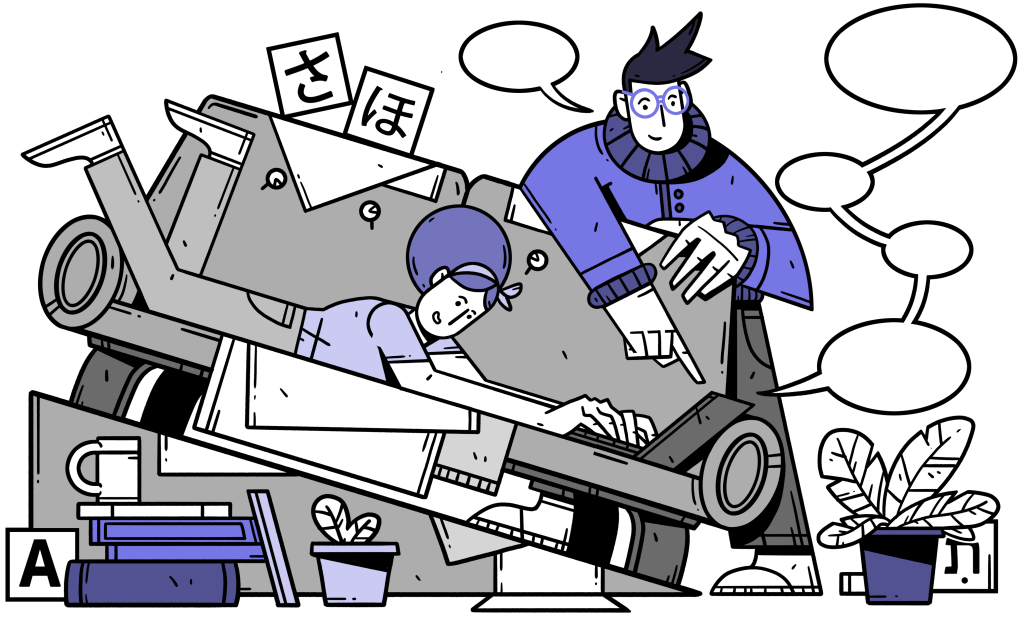Inclusive Play: How Game Localization Opens Doors for Players with Disabilities
Trusted by

Professional translation services to help you reach users everywhere
We bring a fully-managed, best-in-class approach to translation that delivers measurable performance. Our linguists are experts in the field they translate for and have a keen eye for local identity. Whatever your request and desired frequency, we deliver translations daily – so you can keep up-to-speed with your localization schedule. We walk the translation service talk.
A translation agency that works for you
The clock is constantly ticking at Pangea Global! We work smart to ensure a quick turnaround without compromising on quality. How do we do that? We blend our in-depth ‘human translation’ expertise with the agility of Translation Memory so you can enjoy the same quality and stylistically-consistent content in the target language.
Made-to-measure translation services
Whether you need to translate your website, articles, blog posts, slogans, banners, landing pages, brochures, leaflets, user manuals, brand & company presentations, utility bills, or you need a sworn translation of your official documents (i.e.: birth certificates, property deeds, articles of association, passports, national IDs, etc.), or reports, we have a tailored translation service for each and every one.
A few more Good-to-knows. Our translation process is thorough and refined to the tiniest detail – just like a secret recipe that only you can have. Here’s what our translation services are all about:

Naked translation -Transcreation
We take a few scoops of your word and true colours, or say – your story, in its original form, add a few spoonfuls of local spice, stir vigorously and cook it according to the custom. Then, we take a few bites and let you have a taste to make sure we’re on the same page.

Proofreading –
The few bites that count
Two pairs of eyes are better than one in adapting your story to a new local custom. Our linguists are always ready to serve your purpose in another market or before international authorities. Leave the nitty-gritty of typo-proofing to us. We’re exquisite at it.

Linguistic QA –
Doubling down on style
If two pairs of eyes are better for the job, three make it perfect. After the translation has been completed and proofread by one of our linguists, another linguist and industry expert checks the translation against the source-language content, based on clear stylistic and editing guidelines that fit your scope.

A pride of purring
CAT (tools)
Our Translation Management System helps us ensure consistency throughout the whole translation process. Our arsenal also includes XML, XTM, XLIFF – more than just some fancy acronyms, a set of smart solutions that allow us to improve quality and speed.
Frequently Asked Questions & Answers
Why are translation services important?
In a globalised world, access to information is seamless. However, information accessibility its popularisation across nations is facilitated by translation. Therefore, translation services are important for spreading ideas, knowledge, education worldwide.
What are the 4 types of translation?
Four types of translation have been identified, depending on the scope and style of the source language text: literary, professional, technical, and administrative/certified. Each observes a different style and tone of voice, with literary translation being the most creative, sometimes assimilated to transcreation.
Pangea Global is a translation company whose translation service offering spans the whole range of language services mentioned above and localization for bigwig operators across all industries.
Will machine translation replace human translation?
No. Despite the advancements that translation technology has made in recent years, it is doubtful that machine translation will replace human translation. Although machine translation (MT) meets the speed requirement, the solutions provided in the target language are often inaccurate or hilarious. Without the intervention of a human translator, using MT alone would lead to inaccuracy and style inconsistency. If used for day-to-day trivia or casual topics, translation engines can be trusted, yet not for specialised translations such as technical or medical, where human translation has time and again proven its superiority.
Is translation needed in medical and social care?
Yes. Medical and social care require translation to communicate essential information relating to a patient’s diagnosis or civil service rules and procedures, immigration that a foreigner relocated to another country who does not speak the local language needs to know and understand. Translation facilitates accessibility to that information.

































